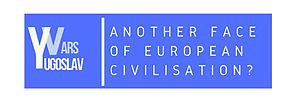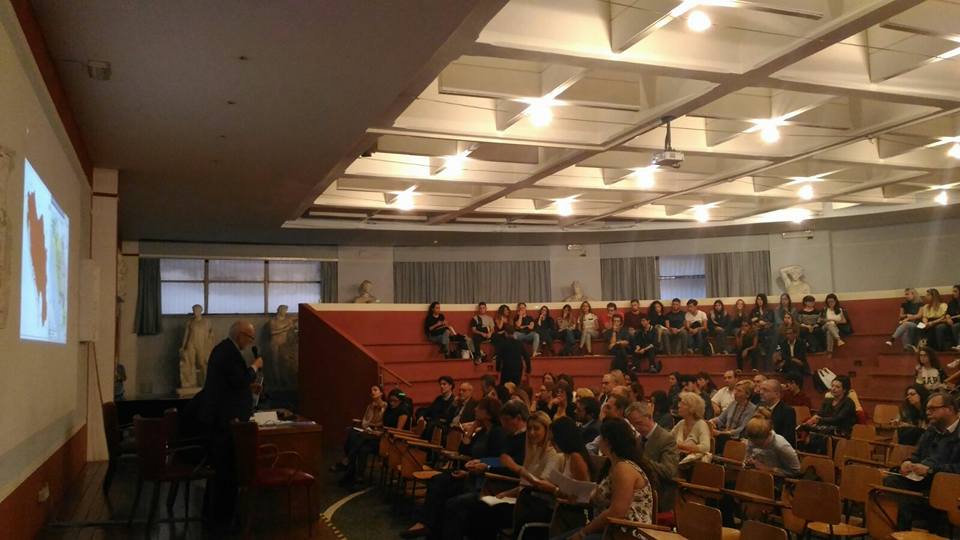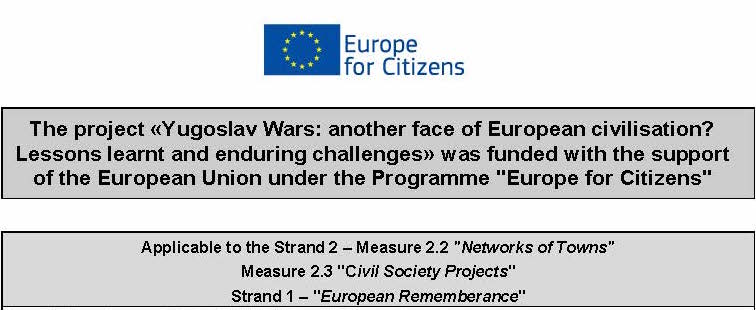Programme EUROPE FOR CITIZENS


Project title: Yugoslav Wars: another face of European civilisation? Lessons learnt and enduring challenges
Project acronym: Yu_Eu
List of Partner Organisations:
- P1 - Applicant Organisation - Università degli Studi di Roma Sapienza - Italy
- P2 - Associated partner - UNIVERZITET U KRAGUJEVCU - Serbia
- P3 - Associated partner - UNIVERSITAT RAMON LLULL FUNDACIO - Spain
- P4 - Associated partner - Radio Svoboda
Short description of the project:
The1991 brought war back to the heart of Europe, in the former Yugoslavia. The project will put the issue of Yugoslavia wars as a fracture in the fabric of European civilisation. This requires a decisively new slant driven by free inquiry and unlimited interrogation in order to explore the operating mechanism of our common civilisation. The events organised in the project “Yugoslav Wars: another face of European civilisation? Lessons learnt and enduring challenges” will be the venue for difficult conversations about crucial questions on Yugoslav wars, European common identity, memory and values. The project, planned for 18 months, consists of (net)working meetings, workshops, conferences, exhibitions, and radio/multimedia programs aimed at a) generating a critical reflection on the past, with a European dimension through quality debates, interactions fostering exchange with other Europeans and awareness of the Union’s history, identity and aim; b) working towards the construction of European collective memories in the plural, which strive for a growing understanding of diversity and enduring challenges, c) fostering the identification with Europe as a complex and in progress reality which also implies engaging with our wounds and working through the feelings and thoughts associated with them. The array of engaging and interactive presentations organised during 3 events in Kragujevac (RB), Barcelona (ES), and Rome (IT), and multichannel radio (+ web, social media) programs by Radio Free Europe are intended to generate conversations across time, fields, and geographic borders; between academic and journalists, activists, artists, performers, and general public. Presentations will include different kinds of voices and each event will mix digital history/reportage, reading of papers, performance, exhibit. These conversations will highlight fresh perspectives and create new networks for collaboration and activism among scholars, artists, activists, teachers, citizens.
| 3 events have been carried out within this project:
Event 1 Event 2 Event 3 |
International Conference, Rome 16th-18th October 2017:
Newspaper article: Il Manifesto - October 14, 2017
Facebook: https://www.facebook.com/EuropeforcitizensYW/?fref=nf
Images of the various activities:


Villa Mirafiori photographic exhibition
Final meeting at the Piccolo Eliseo theater:
last updating: 22/05/2018


